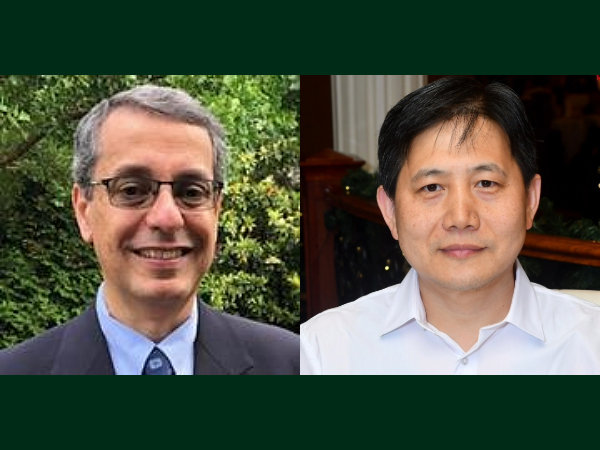 Fady Mikhail, M.D., Ph.D. and Yunjia Chen, Ph.D.Imagine visiting the doctor with questions about your child’s unexplained symptoms, spots on the skin, developmental delays, or a strong family history of illness, and finally getting clear answers. Thanks to advances in genomic testing, families at UAB are finding those answers faster and more accurately than ever before.
Fady Mikhail, M.D., Ph.D. and Yunjia Chen, Ph.D.Imagine visiting the doctor with questions about your child’s unexplained symptoms, spots on the skin, developmental delays, or a strong family history of illness, and finally getting clear answers. Thanks to advances in genomic testing, families at UAB are finding those answers faster and more accurately than ever before.
In the Department of Genetics, doctors are using genetic and genomic testing to pinpoint the exact cause of a patient’s condition—even when symptoms mimic more than one disorder. This clarity is especially vital for conditions like neurofibromatosis type 1 (NF1), which can sometimes resemble other syndromes, such as Legius syndrome.
Clarity can change everything. In one case, a child presented with only a few skin spots—barely enough to raise concern—but testing ruled out NF1 and instead identified a much milder condition.
Sometimes, answers may be hidden even deeper. In patients with mosaicism, the genetic change isn’t present in every cell—meaning standard blood or saliva tests might miss it. In one case, UAB experts had to analyze tissue samples to find the mutation. That discovery facilitated physicians in providing appropriate surveillance and treatment for the patients and also helped the family understand that the mutations may be present in only a subset of cells, meaning the condition may not be inherited. “In addition to providing direct medical guidance to patients, that kind of information significantly reduced patients’ concerns about the mutation being passed on to the next generation,” said Yunjia Chen, Ph.D., assistant professor in the Department of Genetics and director of the UAB Medical Genomics Lab.
These breakthroughs are possible in part because of the work of both Chen and Fady Mikhail, M.D., Ph.D., professor in the Department of Genetics and director of the Clinical Cytogenetics Lab, who has spent the last two decades at UAB. Originally from the University of Alexandria, Egypt, Mikhail directs UAB’s Clinical Cytogenetics Lab and trains future experts in the field. His team uses powerful genomic technologies to examine chromosomes and detect genomic abnormalities that can unravel the genetic cause of neurodevelopmental abnormalities, dysmorphic features and/or multiple congenital anomalies, and reveal clinically significant chromosomal abnormalities in hematologic malignancies.
“We finally diagnose a patient after years of uncertainty. It’s extremely rewarding. You solved that family’s odyssey to a certain extent,” Mikhail said.
Looking ahead, both clinicians believe artificial intelligence will soon help decode even more complex cases, customizing treatment based on a person’s specific DNA. But they say progress also depends on people choosing to participate in research and share their health experiences.
“AI will be helpful if we can use it correctly… I believe its development will definitely increase,” Chen said.
Whether it’s diagnosing a child, easing a parent’s fears, or shaping a treatment plan, one thing is clear: clinical genetics is no longer the future of medicine—it’s here, and it’s personal.